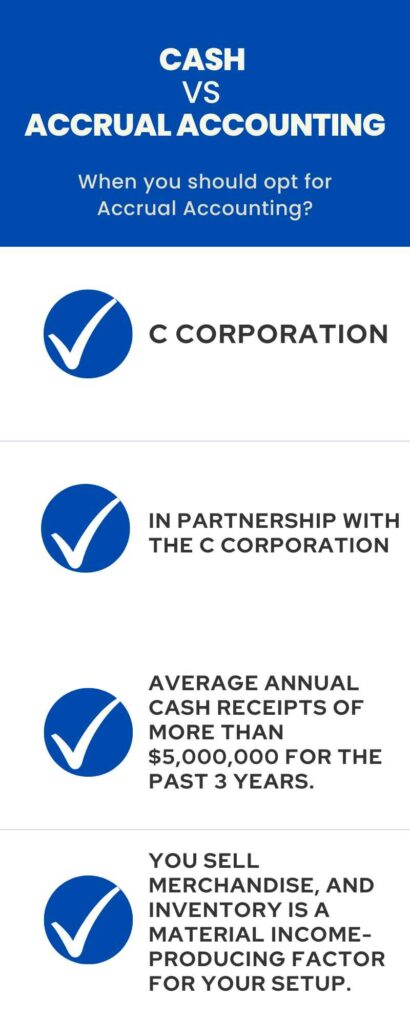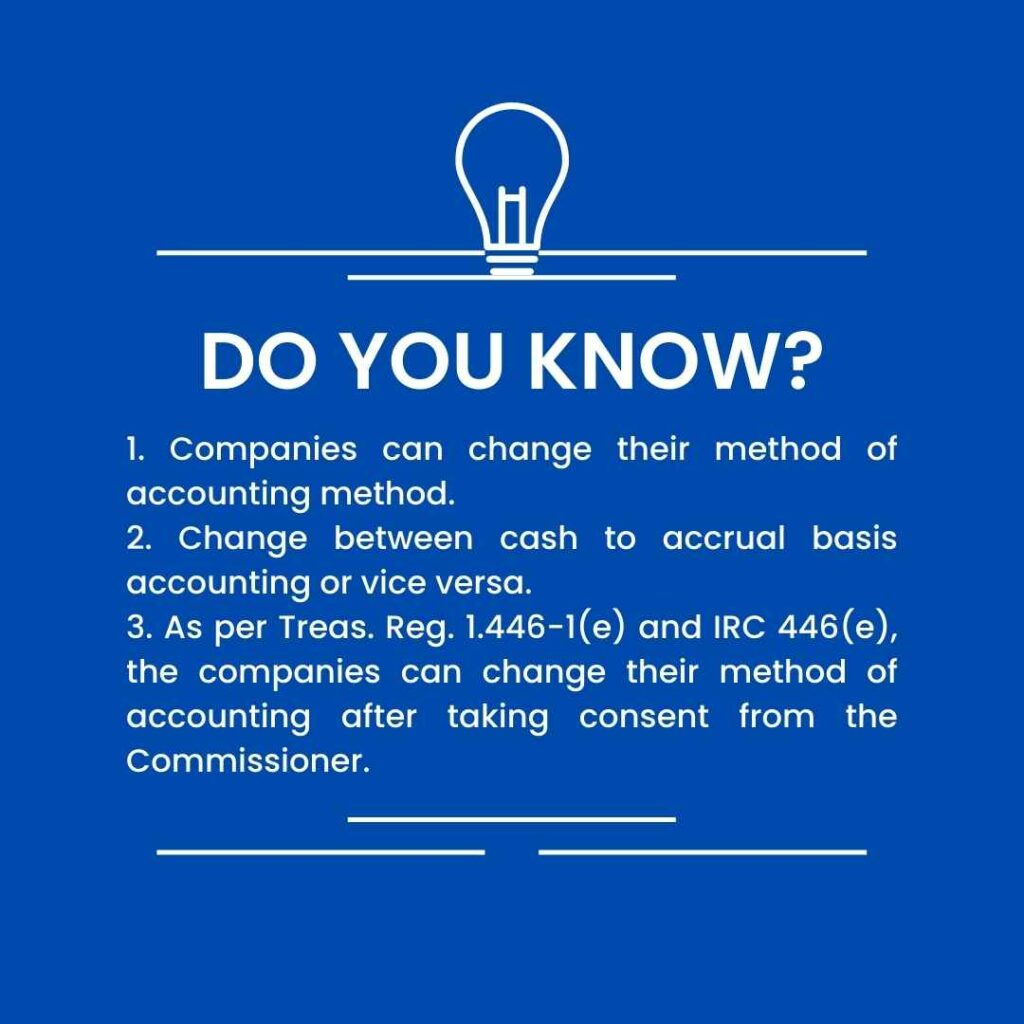The accrual and cash basis of accounting has its own merits and demerits. Business owners need to record transactions and interpret the financial results that ultimately contribute to decision-making.
[ez-toc]
Revenue and expense recognition principles directly impact how we assess business performance.
For example, suppose you concluded a deal, delivered a product in a month, and received its payment the next month. In that case, the first month will be portrayed as generating no income, whereas the second month will be depicted as highly profitable.
To which month does the above revenue (payment in this case) belong?
It is not just about recognizing revenues but will also impact taxation and management of working capital, cash flows, etc.
Recognizing revenues and expenses and mapping them to the right time frame is the base of all decision-making. Getting a true picture of a business when thousands of small transactions are taking place is a daunting task.
Here in this article, let us explore the differences between cash vs. accrual accounting and understand their basic features to decide which basis of accounting will suit your business.
Cash Basis Accounting
Cash basis is an accounting method that records financial transactions when cash is received or paid out. In other words, transactions are recognized only in real cash.
The Tax Reform Act of 1986 prohibits using cash-based accounting methods for major businesses and tax entities such as the C corporation. The main reason for that is the inaccuracy that comes with the simplicity of the cash basis accounting. It is the simplest and oldest method of bookkeeping, which keeps close track of how much cash is coming in and how much leaves the company.
Often business owners find the cash basis of accounting easy in the early phases of the business. Still, as the company expands and transactions increase, the cash basis accounting needs to represent the true and fair picture of the financial conditions of the business.
Accrual Basis Accounting
The accrual accounting method records financial transactions when revenues and liabilities are incurred, regardless of when the cash is exchanged.
The accrual basis of accounting is the more acceptable, detailed, and authentic method of accounting. And most businesses usually use the accrual method of accounting because of the GAAP and IRS guidelines and requirements. But this method is only affordable to some companies and corporations and is optional.
Key Differences
| Cash Basis Accounting | Accrual Basis Accounting |
|---|---|
| Recognizes revenue when cash is exchanged. | Accrual accounting recognizes revenue and profit when a company earns, i.e., when it completes a contract. |
| Recognizes expense when it is paid or disbursed. | Recognizes expense when it is incurred. For instance, when the bill is received. |
| A company does not pay income taxes on the money it has not received. | The company may pay income taxes on the money it has not received |
| Recommended and acceptable for sole proprietors and small businesses that operate without inventory. | Required for businesses and C corporations with average annual cash receipts of $5000000 for the past three years |
Advantages
Cash vs. accrual accounting may put the accrual method over cash basis accounting for its long-term transparency and accuracy benefits. The reality says that both accounting methods have their advantages.
Here are the advantages that each of the accrual-based accounting and cash basis accounting offer:
| Cash Accounting | Accrual Accounting |
|---|---|
| Ease of Use It is easy to determine when the transaction occurred, as it directly involves the bank balance flowing in or out of the company’s accounts. There is no need to track the payables and receivables, making it quite straightforward. | GAAP Compliance The accrual basis of accounting is advocated under generally accepted accounting principles (GAAP) and international financial reporting standards (IFRS). This accounting method makes the financial statements eligible for audits, loans, and public exposure by the publicly traded companies listed on the SEC. |
| Potential Tax Benefits Cash accounting allows you to pay taxes only when cash transactions occur. A company can speed up expenses to show less revenue and hence defer tax liabilities for the time being. | Accuracy Accrual accounting shows a bigger and more accurate picture of the company’s financial statements. Accrual financial reporting includes: – Recording the smallest financial detail. – Matching the revenue and expenses side by side. – Every potential transaction. |
| Cost-effective for Small Businesses Cash accounting lets small businesses escape the strict accounting regulations of the Financial accounting standards board (FASB) and GAAP. This method’s cost-effectiveness, simplicity, and tax benefits give an edge to starting businesses. | Transparency For public exposure and international funding, a company needs audited financial statements and accrual basis accounting. The accrual method ensures reliable and transparent financial reporting, thus helping investors, lenders, and auditing firms. |
Disadvantages
The accrual basis and cash accounting methods have disadvantages according to the type and scope of a business. Small business owners may choose the cash basis method for its good sides, but they will need more accuracy and transparency aspects of financial bookkeeping.
Similarly, companies that own inventories that deal with accounts receivable and accounts payable may opt for the accrual method. But the accrual method is only partially free of disadvantages too.
Here are some disadvantages of the cash and accrual accounting methods:
| Cash Accounting | Accrual Accounting |
|---|---|
| Lack of Accuracy Cash basis accounting needs to show the complete picture of the company’s finances. When only cash transactions are recorded, expenses and income may not match. And the incurrence and recording of a transaction may occur in two different reporting periods, again, is misleading. | Complex Accrual accounting is a complex and intense method as it requires keeping track of every financial activity and balancing expenses with income on the balance sheet. Accrual accounting books are very detailed and extensive, making tracking the accounts backward complex. |
| Room for Manipulation Cash accounting tracks the amount of cash in the account, and you only pay taxes on the money you own. Companies and management can delay checks and payments to a more taxation-wise feasible reporting period, which can also misrepresent the company’s financial health. | Expensive Given the detail, complexity, and strict regulations of accrual accounting, a company will need to hire expert accountants with several bookkeepers to handle the accounts. |
| Lending Lenders, investors, and banks require audited financial statements. Auditing firms do not audit a company’s financial statements under the cash method. The main reason for the unacceptability of the cash basis accounting is its non-compliance with the generally accepted accounting principles (GAAP) and IRS. | Taxation Accrual basis accounting records revenue and expenses when they are incurred, not when they happen. And the taxes also apply to the same transactions, regardless of the cash flow. So, a company may have to pay taxes on an income or revenue a company does not own yet. |
| Hard to Switch Over A business may start with cash method accounting initially. But as a company grows, GAAP and IRS compliance makes it mandatory to follow accrual accounting. Changing the accounting method becomes too cumbersome as it includes many statutory approvals and procedures that could be time taking and riddled with consequential disclosure requirements. | Vulnerability to Fraud Accrual accounting needs strong internal controls and expert accountants to ensure there are no loopholes in bookkeeping. It is important for the chief accountant to fully understand the ins and outs of bookkeeping guidelines and regulations.. |
Which one should you choose for your business?
Cash and accrual accounting are two major accounting methods, popular for their reasons. Accrual accounting is more popular as it is more transparent and accurate. The accrual method is more reliable for investors, tax departments, and banks as it presents a holistic picture of the company’s financial health.
Cash basis accounting is popular for its tax benefits and simplicity and is a better choice for small businesses. Sticking to one accounting method, however, is important.
The American Institute of Certified Public Accountants AICPA has published detailed guidance in their Journal of Accountancy to help businesses decide the suitable method of accounting.
You should choose accrual accounting if:

- Your business is a C corporation or in partnership with the C corporation, with average annual cash receipts of more than $5,000,000 for the past three years.
- You sell merchandise, and inventory is a material income-producing factor for your setup.
You get to choose between the two accounting methods if:
- Your business is a service provider, and your company does not own an inventory.
- You are a sole proprietor with average annual gross receipts of less than $1,000,000.
- A C corporation with average annual gross receipts of less than $5,000,000.
When you are in a situation where you have a choice, you should consider your budget for accounting and future prospects. The cash basis accounting method may seem easy for your business due to its simplicity and cost-effectiveness.
But if you foresee your business expanding in the coming years, you will eventually have to switch to an accrual basis accounting method for accuracy, transparency, and compliance issues.
Implementing the Change in the Accounting Method

Companies can change their method of accounting between cash basis accounting to accrual basis accounting or vice versa. According to Treas. Reg. 1.446-1(e) and IRC 446(e), the companies can change their method of accounting after taking consent from the Commissioner.
The approval is mandatory for the company because it affects the tax computation at the federal income tax level. Any change from an ‘adopted’ or ‘established’ method of accounting can be implemented only after getting statutory approvals.
Treas. Reg. 1.446-1(e)(3)(i) also mandated the filing of IRS Form 3115, which is “Application for Change in Accounting Method.” Form 3115 must be filed to get consent for the change during the tax year in which the company requests the change.
Importantly, the retroactive change in the accounting method is not permitted under normal circumstances, even if the difference is related to valid accounting methods. There are rare cases where the decision-making body authorizes the retroactive change.
Cut-off Method and IRC 481
In case of a change in the accounting method, there often occurs a mismatch in income and expense reporting. There emerges duplication, omission, or other accounting errors that impact the previous financial year from the year the change is implemented.
When there is a reporting mismatch, the adjustment must be made per the cut-off method or IRC 481(a) adjustment if there are substantial adjustments. IRC 481(b) limits tax liability.
There is a provision for audit protection for a taxpayer who timely files for the change in the method of accounting. In certain cases, such protection is not permitted.
The method of accounting directly impacts tax computation. If the taxpayer fails to maintain any accounting system or there are frequent changes, the IRS can choose any manner it deems fit for calculating the taxable income. Certain regulations allow different accounting systems, one for financial reporting and another for tax compliance, that meets IRC requirements.
Final Words
The cash basis of accounting or accrual basis both have pros and cons, but their application is only sometimes voluntary. For publicly traded companies, there is a compulsion to follow accrual accounting.
Accrual accounting is a synonym for the matching principle. Under the matching principle, the companies must match revenues with expenses. For SEC filing, compliance with GAAP is mandatory.
Akounto is an all-in-one accounting software that handles everything from invoicing to tax filing and everything in between. Akounto provides the option to switch from one accounting method to another. You can easily switch between accounting methods and maintain tax-compliant reports.



